Results 1 to 8 of 8
Thread: Ever Heard of a Stiddy?
-
09-30-2009, 09:43 AM #1Senior Member



- Join Date
- Apr 2008
- Location
- Essex, UK
- Posts
- 3,816
Thanked: 3164 Ever Heard of a Stiddy?
Ever Heard of a Stiddy?
I stumbled acros reference to "a Stiddy" on the "Vintage Sheffield Folders" forum and thought that it may be of interest to some members. It was a small anvil with cut-outs, used by razor-setters to assemble the component parts of an open razor. Here are a few pics:
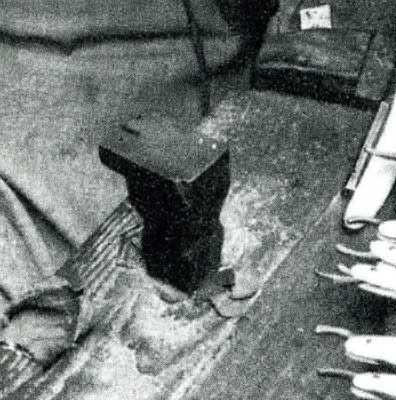
The one above shows Tom Renshaw's stiddy (he was Billy Hukins setter-in at J & W Raggs Little London works in the 1970s). The two white dots are cup-shaped depressions into which the pins were placed in order to dome the ends.
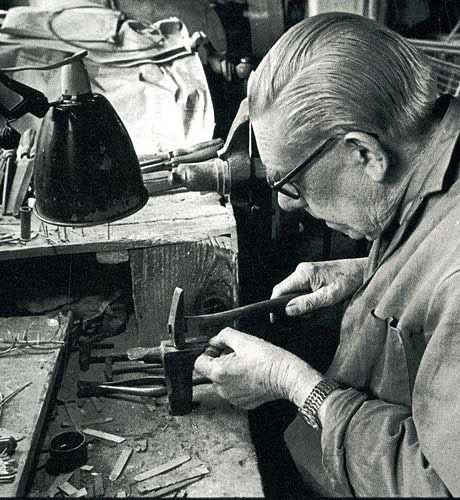
Above: Ernest Mills working at his stiddy.
The tapered square cross section of the stiddy was put into a hole on the worktop. The name may be a corruption of "Steady" because it 'steadied' the work and didn't move when hammered on. The blademakers used larger anvils called 'stithies'
The setter-in would also produce the domed washers for the pins - Tom Renshaw used a sheet of lead over which was placed a thin sheet of latten (an early type of copper alloy like brass, made into thin sheets by battering it with steam hammers). He had a "two circle" tool which he hammered into the latten, producing the following:
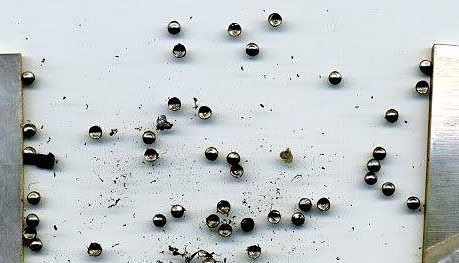
You can just make out that they are not pierced - the "two circle" tool must have been a round punch hollowed out into a cup shape but with another small circle (hence "two circle") in its middle, to produce a depression in the head of the domed washer through which the pin was driven. The washer/pin must have then been placed into the depression in the stiddy, the scale-blade-scale-domed washer assembled over it and the whole peened together.
The setter-in had other duties too, like decorative pin-work (called pique-work) and scale inlays:
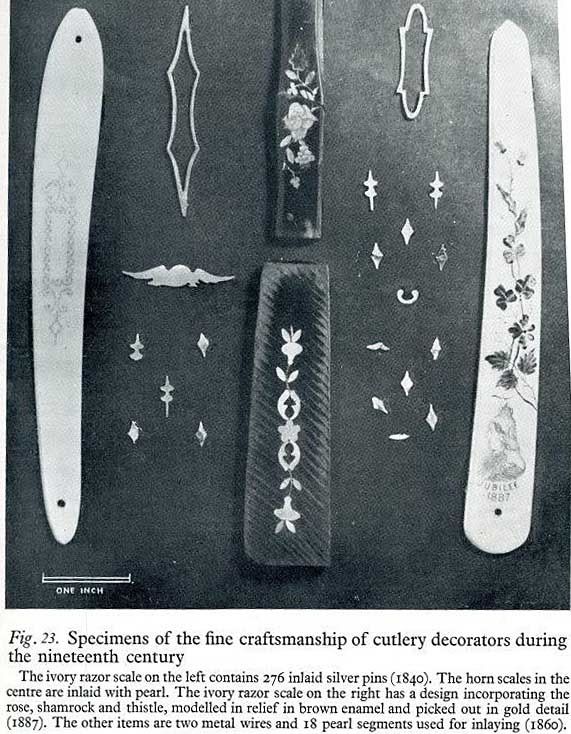
Regards,
Neil
-
The Following 14 Users Say Thank You to Neil Miller For This Useful Post:
0livia (09-30-2009), aroliver59 (09-30-2009), ChrisL (09-30-2009), dnjrboy (09-30-2009), DPflaumer (09-30-2009), FTG (09-30-2009), JeffR (09-30-2009), joke1176 (09-30-2009), keenedge (09-30-2009), Lynn (09-30-2009), matt321 (10-01-2009), Slartibartfast (09-30-2009), spazola (06-08-2013), Walt (09-30-2009)
-
09-30-2009, 12:06 PM #2

Interesting. Is that a notch or slot in the first picture? If so, what was that used for?
-
09-30-2009, 12:08 PM #3

WOW.Wonderful old pics and great information.Thanks,Neil......
-
09-30-2009, 12:30 PM #4

That was actually very interesting.
I kind of want one now. I feel like it would make my first attempts much easier.
-
09-30-2009, 03:04 PM #5Razor honing maniac


- Join Date
- Jun 2009
- Location
- On the beautiful St. Croix river
- Posts
- 228
Thanked: 51
I tried to navigate around that sheffield site and did not work.
Where did you get the pic's? Post the link to it please.
Thanks,
Bill W
-
09-30-2009, 03:34 PM #6

Very cool!
The head of the stiddy looks very simular to the top anvil part of my bench pin.
Just cut a slot in the front and use a round burr to make the two half round sets to the side. The benchpin also clamps onto the end of the bench, so that might be a neat idea for guys to try.
John
-
09-30-2009, 04:58 PM #7Senior Member



- Join Date
- Apr 2008
- Location
- Essex, UK
- Posts
- 3,816
Thanked: 3164
The notch is something to do with pocket-knife springs, I think. The tool was used by all sorts of cutlers, so I imagine it had a host of uses. Some of the websites I have visited mention a "spreader" part - apparently it was placed between the liners of a knife (or razor?) when it had been over-peened in order to open it up a bit.
The website that includes the vintage sheffield folders is British Blades.
I found another, clearer picture of two old stiddies on another site:
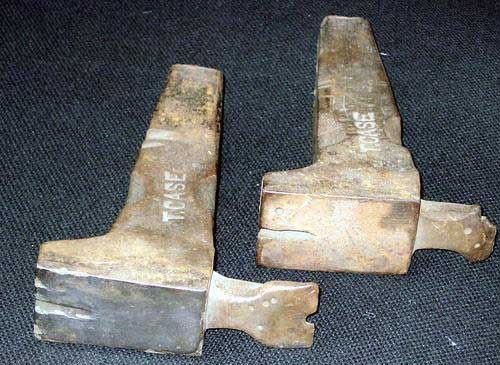
and a US company called Great Lakes Waterjet, Inc make a high-spec, lasercut modern version:
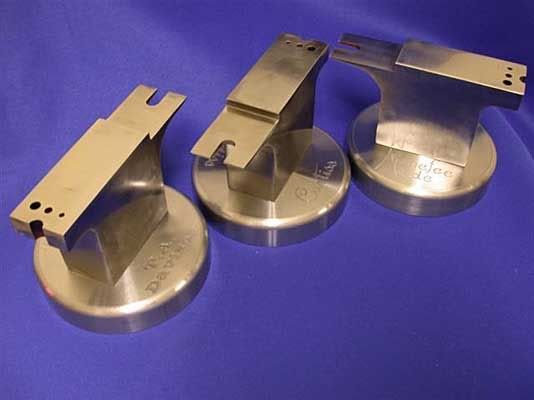
...it will set you back $350 though! I think I'll stick to my tiny jewellers anvil with the holes drilled in it...
Regards,
Neil.
-
The Following 2 Users Say Thank You to Neil Miller For This Useful Post:
keenedge (09-30-2009), turbine712 (09-30-2009)
-
09-30-2009, 05:10 PM #8Beard growth challenged

- Join Date
- Feb 2009
- Location
- Berlin
- Posts
- 1,928
Thanked: 402
Wonderful to see!
Thanks for posting this.


 2Likes
2Likes
 LinkBack URL
LinkBack URL About LinkBacks
About LinkBacks






 Reply With Quote
Reply With Quote